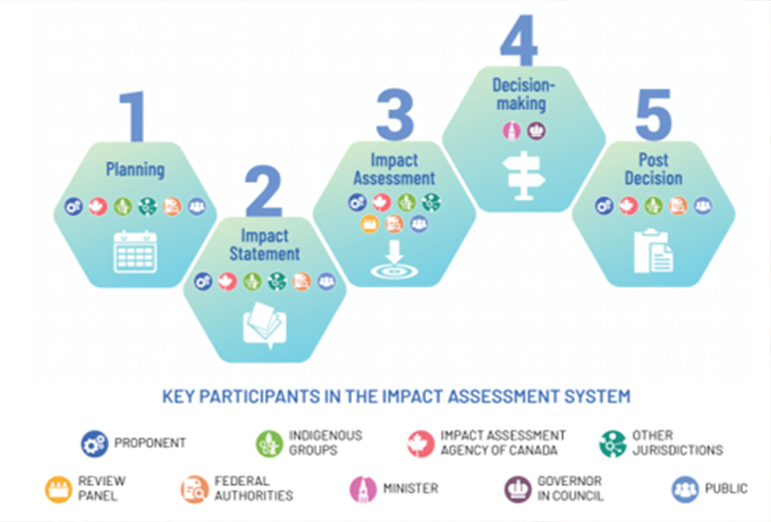SOUTH BRUCE – Members of the South Bruce Community Liaison Committee (CLC) met virtually on June 1 to learn hear from representatives of the Canadian Nuclear Safety Commission (CNSC) and Impact Assessment Agency of Canada (IAAC).
The CNSC and IAAC representatives joined the meeting to explain the assessment and licensing process that would begin following the site selection for the Nuclear Waste Management Organization’s (NWMO) proposed deep geological repository (DGR).
Currently two locations are being considered for the project – South Bruce, near Teeswater, and Ignace, in northern Ontario.
South Bruce council has committed to holding a referendum to measure the community’s willingness to host the DGR prior to the NWMO selecting the site.
The committee was told that one a site has been selected, a series of federal reviews will begin.
In the case of the DGR, the IAAC’s job is to conduct impact assessments that look at the positive and negative environmental, economic, social and health impacts of the project, and to contribute to an informed decision-making process.
The CNSC regulates the use of nuclear energy and materials to protect health, safety, security, and the environment.
For the DGR, the CNSC and IAAC will conduct an integrated assessment for the project – in this case, a panel of experts will ensure the project complies with both the Impact Assessment Act and the Nuclear Safety and Control Act (both pieces of federal legislation).
The representatives stated the impact assessments would be conducted by a panel of independent, unbiased experts (including at least one from the CNSC roster) with extensive experience and industry and/or Indigenous knowledge as well.
There are five phases of an impact assessment:
– planning;
– impact statement;
– impact assessment;
– decision-making; and
– post decision.
In the planning phase, members of the public are invited to provide information and contribute to planning the assessment. This phase was the main focus of the IAAC and CNSC presentation last week.
More information on the five phases of an impact assessment can be found online by searching “Impact Assessment Process Overview” on Canada.ca.
The planning phase, which can be up to 180 days, consists of a commenting period for the public, open house information sessions, public hearings, and public comment periods.
The presenters said public participation is important for gathering community knowledge and opinions on benefits, concerns and mitigation measures that are essential for a comprehensive impact assessment.
The CNSC confirmed that for licenses to be approved and work at the selected site to commence, the IAAC’s impact assessment must be completed and approved.
“We will verify the research data of the proponent; we will review geoscience characterization and their underground research and we will confirm that their environmental monitoring programs are sufficient,” said CNSC representative Julia Smith.
The full slideshow presentation by the IAAC and CNSC representatives can be found online at southbruce.ca.
Funding requests
At the June 1 meeting, members of the CLC approved a request from the Municipality of South Bruce for funding to offset the costs of operating summer camps.
A request to the Early Investments in Education and Skills Fund was submitted to the committee by Amanda Watson, recreation programmer with the municipality, seeking up to $6,500.
Those funds would be used to assist with the purchase of STEM activity materials, such as LEGO, microscopes and other items, as well as with covering a portion of the facility rental costs and food.
A staff report from Dave Rushton, project manager with the South Bruce Nuclear Exploration Team, provided four options for the committee to consider:
providing $3,713, which would cover half of the facility rental costs;
providing $4,213, which would cover half of the facility rental costs and $500 in food;
providing $5,192, which would cover $500 in food, $2,835 in programming costs and $1,857 in facility rental fees; or
providing the requested amount of $6,500.
The CLC ultimately voted in favour of providing $4,213.
The committee also voted in favour of providing $4,000 to the Sacred Heart School – Teeswater parent council for the construction of a shed to be used for outdoor education and STEM programming.
Next meeting
The next CLC meeting will take place on Thursday, July 13 via Zoom.
The meeting was originally scheduled for July 6, but was changed due to some members of the CLC participating in the tour of the Onkalo Nuclear Facility in Finland July 2-7.



